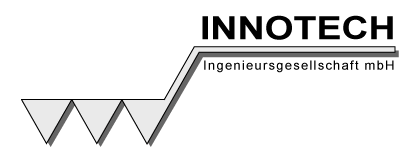Success stories
UpgradePlus
Reduction of post-harvest losses:
Decentralised post-harvest processing of underutilised species to generate innovative products for improved food and nutrition security in West Africa. Over 1.3 billion tonnes of food is still 'lost' through post-harvest losses or wastage in supply chains. This leads to significant losses of natural resources in addition to economic losses.
Enhancing food security:
Rural societies in sub-Saharan Africa often suffer from unbalanced diets due to the seasonality of many agricultural products, limited preservation and transport options, and lack of adequate storage facilities. This can be particularly life-threatening for pregnant women, infants and young children. Current measures to combat malnutrition include supplementing diets with micronutrients, fortifying staple foods and biofortification. Previous attempts to address this fortification in small and medium-scale food processing facilities have failed due to a lack of a scalable technology solution and a sustainable business model to support the target groups.
In addition, rural people often rely on traditional food processing techniques such as manual peeling, crushing and grinding, and sun drying to process food for home consumption and local markets. This underlines the need for an innovative, user-friendly, low-cost, low-maintenance and environmentally friendly processing machine for rural areas.
Project
Results & Partners
A modular, decentralised, solar-powered food processing system (peeling, chopping, drying, grinding) will be developed to improve nutrition for women, infants and young children. At the same time, additional sources of income for women's self-help groups in West Africa can be created and post-harvest losses of little-used agricultural products reduced.
- Develop innovative, modular, decentralised, photovoltaic-powered, small-scale post-harvest food processing facilities adapted to local conditions.
- Use of high value, underutilised plant species for the production of diverse and nutrient-rich processed foods with longer shelf-life.
- Strengthening women, especially in self-help groups, to prevent micronutrient deficiencies in children and improve the health of pregnant and lactating women.
- Introducing the technologies and procedures locally by training local artisans to build the systems using locally available materials and by selected members of women's groups to train new users.
Funding note
Further Informationen
The UPGRADE Plus project started in October 2017 and will last three years. It is funded by the Federal Ministry of Food and Agriculture (BMEL) with 1.1 million euros and implemented via the Federal Agency for Agriculture and Food (BLE).
The project team consists of six partners from four countries: the University of Kassel (Germany) as project coordinator, the German Institute of Tropical and Subtropical Agriculture, DITSL (Germany), the University for Development Studies (Ghana), the Njala University (Sierra Leone) and the National Horticultural Research Institute (Nigeria). A detailed overview and further information can be found on the project's homepage https://upgrade-plus.org/
The project is funded by the Federal Ministry of Food and Agriculture (BMEL) on the basis of a resolution of the German Bundestag. The project is sponsored by the Federal Agency for Agriculture and Food (BLE) within the framework of the Federal Program Organic Farming and Other Forms of Sustainable Agriculture.
